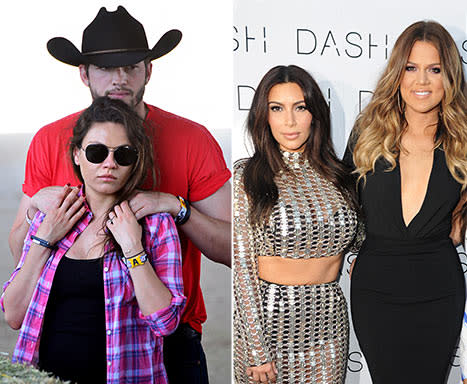Lorde and
Iggy Azalea attacked music critics over the weekend, bashing
Complex for putting Azalea on its cover last year and then publishing an unflattering review of her new album.
The saga began when Lorde wrote on Tumblr, “Bugs me how publications
like complex will profile interesting artists in order to sell
copies/get clicks and then sh*t on their records?”
“It happens to me all the time – pitchfork and that ilk being like
‘can we interview you?’ after totally taking the piss out of me in a
review,” she added. “Have a stance on an artist and stick to it. don’t
act like you respect them then throw them under the bus.”
As an illustration of her point, she posted a picture of Azalea’s October 2013
Complex cover juxtaposed with the magazine’s more recent review headline, “Iggy Azalea’s ‘The New Classic’ Isn’t Really” (
see below).
Azalea then weighed in, agreeing with Lorde and going after the critics.
Then
Complex struck back.
In a piece explaining why Lorde and Azalea were “wrong about
criticism and journalism,” the outlet made a number of points about how
the artists’ attack was off base.
Among the relevant passages:
Contrary to whatever Lorde may think, for Complex to
give a cover to an artist like Iggy Azalea or current covergirl Jhené
Aiko (or even Lorde for that matter) it simply boils down to Complex
thinking the artist is someone our audience is interested in. Giving
someone a bad review basically boils down to thinking someone our
audience is interested in didn’t make a very good record. We can’t speak
for all publications, but we imagine it works about the same way for
them.
Lorde declaring “have a stance on an artist and stick to it” is a
bizarre notion for an organization like Complex, which is to say
bizarre for any media organization that claims to have any journalistic
integrity. No one should stick to their opinion when new facts (possibly
in the form of new music) are made available that can alter your
views. Art and artistry are fluid things.
If Complex—or the media at large—operated the way Lorde wished,
it would do away with journalistic integrity all together. Lorde—as well
as Iggy—seem to confuse press as “respect” and criticism as being
thrown “under the bus.” Truth is, not every media interaction will be
mutually beneficial. Sure, giving Iggy a cover helped us “sell
copies/get clicks” but it also helped establish Iggy as a star. When Def
Jam sent its Iggy press kits around, best believe Complex’s cover and
cover story were featured in it. There’s no way Iggy can say she didn’t
benefit from being on our cover. Maybe she didn’t benefit from our
review, but so be it. Celebrities seek attention and media coverage
every time they do something great, why would the camera stop rolling
when they do something not so great? And even if they do, it isn’t meant
to be disrespectful—it’s meant to be critical.
This issue Lorde highlights is an on-going problem in music
writing, one where artists seem to think of journalists as akin to their
publicists, and journalists are afraid to say anything bad about an
artist for fear of losing access. An artist thinking that just because
they’re interviewed by an outlet that said outlet can’t then “sh*t on
your records” muddies the difference between music profiling and music
criticism. The job of a journalist profiling an interesting artist is to
bring their story to life for an audience. The job of a music critic
writing a review is to put an album in the proper context for listeners
and, yes, share their opinion on the album. Thinking doing one means a
publication can’t do the other misses the point of each entirely.


